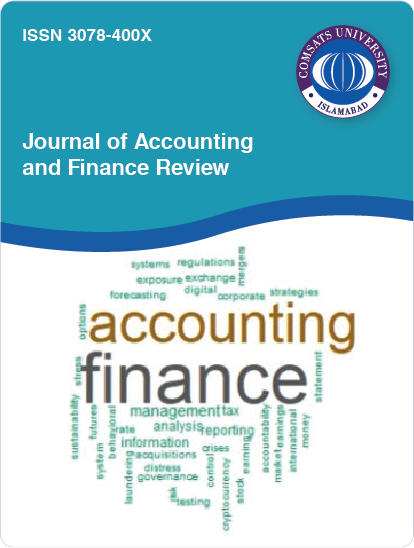Impact of Green finance on energy efficiency: A Panel Data Analysis of Pakistan, Japan, China, United States, UK, and Germany
DOI:
https://doi.org/10.26652//jafr/24.01.003Keywords:
Green finance, Energy efficiency, GDP, Technological advancement, FDIAbstract
Developing a futuristic route that leads to self-sustainable energy use depends heavily on the landmark research on how financial services affect energy efficiency (EE) in developed and underdeveloped countries. Therefore, we are particularly interested in observing how trade liberalization and energy efficiency affect each country's environmental quality. In our research, we obtained annual time series data covering the years 1991 to 2021, and we ran various econometric models based on the penal data analysis and correlation using a single-country study first, then a multi-country study. With this approach, an in-depth investigation of the effects of green finance and energy efficiency is looked after. Although the average result of energy efficiency is modest nationally, it demonstrates a tendency for steady improvement throughout the research. From a national standpoint, there is a substantial imbalance in the development of energy efficiency, with Pakistan having the lowest levels and Japan, China, and the United States of America having the greatest. For all nations, green finance has significantly compelled an increase in energy efficiency; however, the green finance policies of Japan, China, and the United States have improved energy efficiency, while those of Pakistan have inhibited it. Green finance has significant relationships with energy efficiency.
Downloads
Published
Issue
Section
License

This work is licensed under a Creative Commons Attribution-NonCommercial 4.0 International License.



